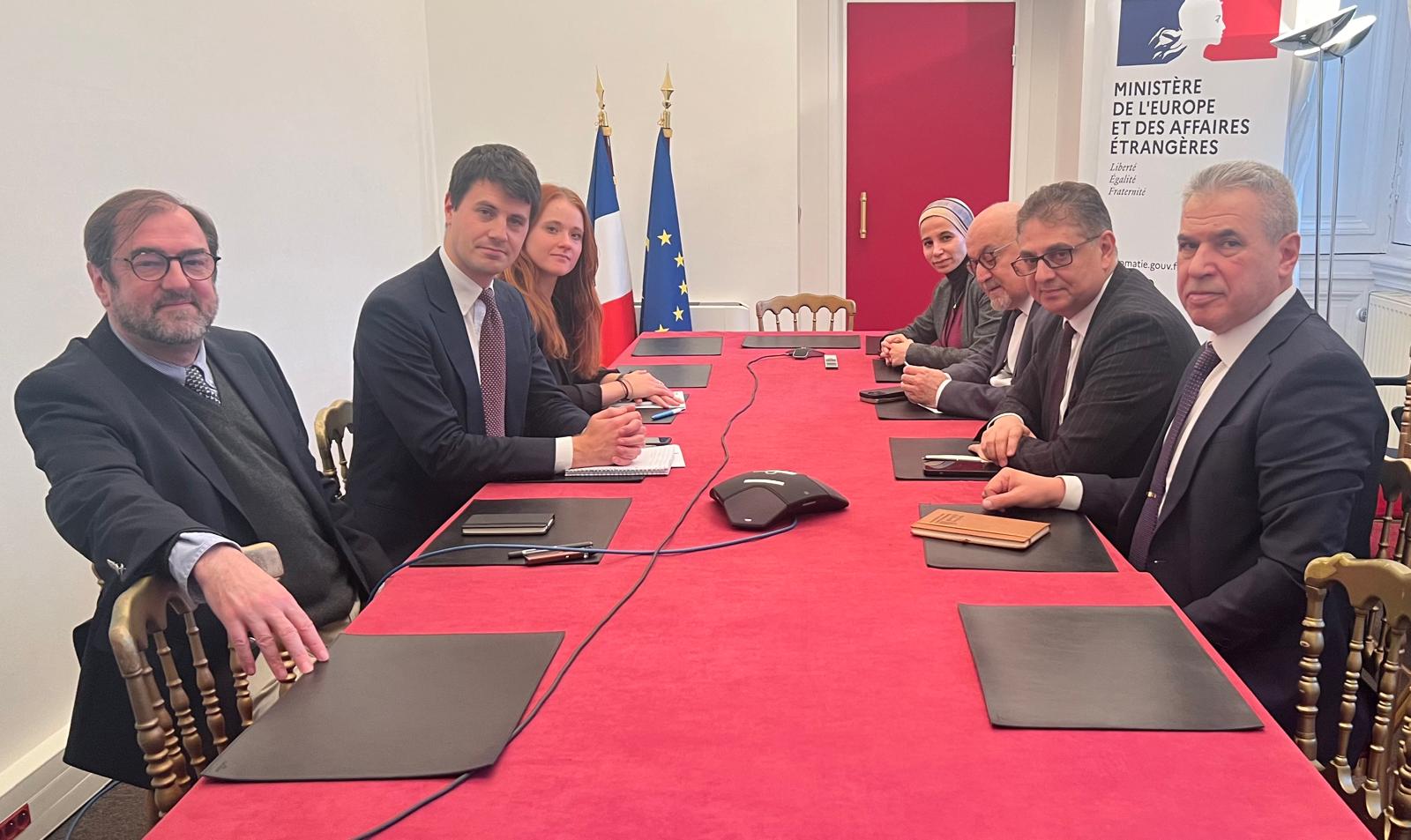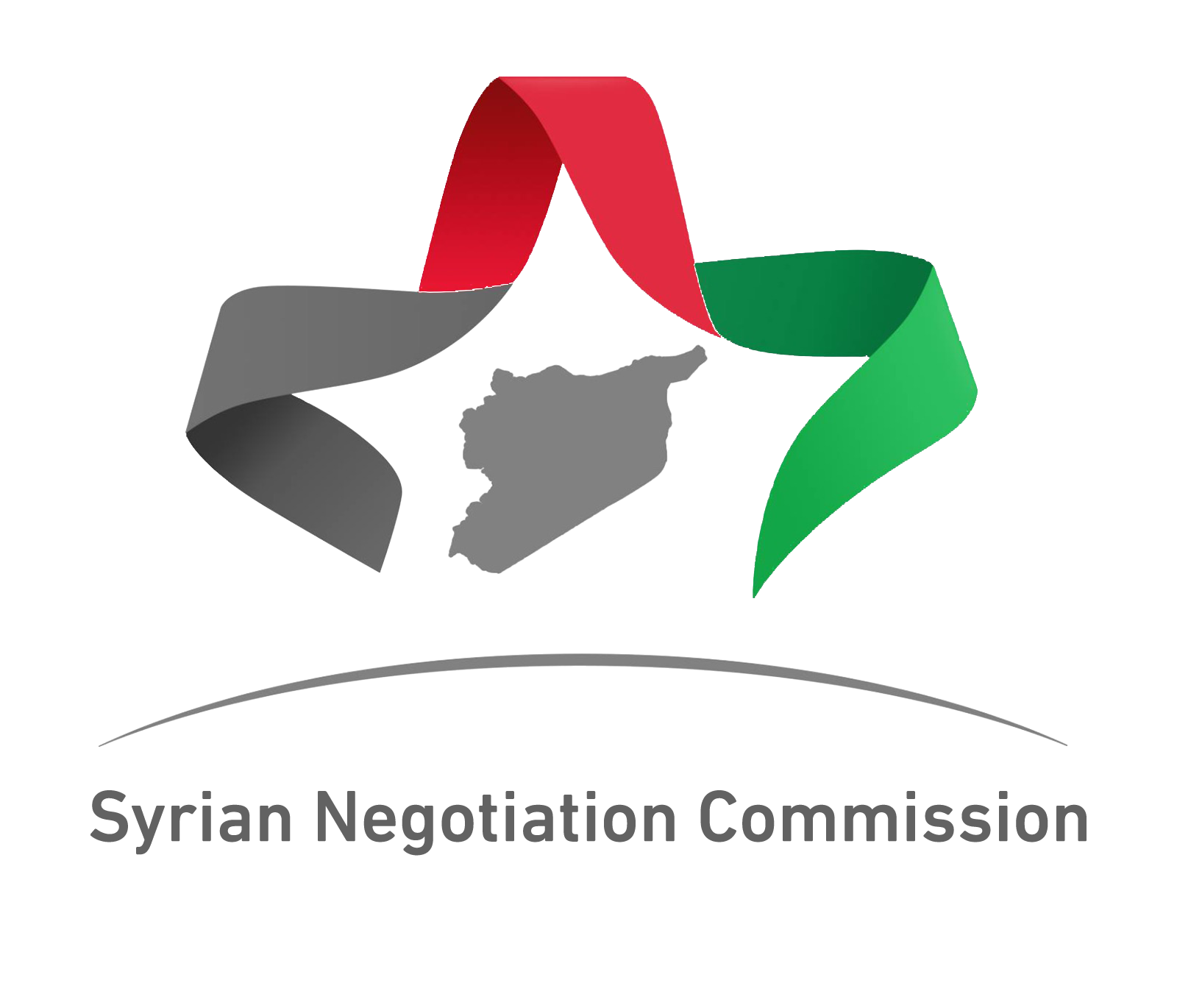The Head of the SNC Meets Advisor to the French Foreign Minister
Dr. Jamous Stresses the Three Nos and Non-Return of Refugees

November 22, 2024
The Head of the Syrian Negotiating Commission, Dr. Badr Jamous, and a delegation from the Commission met at the French Foreign Ministry in Paris yesterday (Friday) with the Advisor to the Minister of Europe and Foreign Affairs for North Africa and the Middle East, Mr. Quentin Gentti, and discussed with him a number of issues related to the Syrian issue, most notably the European strategy and the political solution in Syria.
During the meeting, which was held at the French Foreign Ministry and attended by Abdul Ahad Estifou and Ibrahim Berro, the Head of the Commission stressed the importance of European strategies adhering to the three nos approved by the European Union Council in April 2017, and the European Union’s confirmation that there will be no normalization, no reconstruction, and no lifting of sanctions unless the regime participates effectively in the political solution in accordance with Security Council Resolution 2254.
Dr. Jamous stressed France’s clear and supportive stance towards the Syrian people and their cause, and its conviction that implementing this resolution strictly and completely is the path to achieving stability and sustainable security in Syria, and its support for a real and comprehensive political transition in line with international resolutions, and its support for the efforts of the UN Secretary-General’s Special Envoy to Syria.
The head of the SNC spoke about the danger of not moving towards implementing this resolution in the current circumstances that the Middle East is going through, and the effects of the extension of the Israeli war against the Iranian-affiliated militias in Syria.
He referred to the issue of Syrian refugees in Lebanon and those fleeing the repercussions of the Israeli aggression on Lebanon, and the risks they face in both cases, and the Syrian regime’s intimidation and arrest of some returnees, and the continued violence of the security services.
Dr. Jamous stressed the need to increase humanitarian aid to Syrians everywhere in Syria, especially northwestern Syria, and the importance of monitoring this aid accurately and strictly and not allowing the Syrian regime to exploit it, whether it comes through international aid or through the Early Recovery Fund, which must be managed by a special committee in which the opposition and neutral international parties participate.
Members of the delegation spoke about the practices of the de facto authorities in northeastern Syria, their violation of all human rights conventions, their relationship with the regime and their coordination with it, and the necessity of not cooperating with these de facto authorities as long as they continue with their totalitarian approach. The discussion also addressed the issues of Syrian refugees in Europe, and the impossibility of their return without a safe and neutral environment provided by a Transitional Governing Body (TGB) in accordance with Resolution 2254, pointing to the risks of increasing the severity of this phenomenon if countries are lenient with the Syrian regime or ease sanctions on it.
